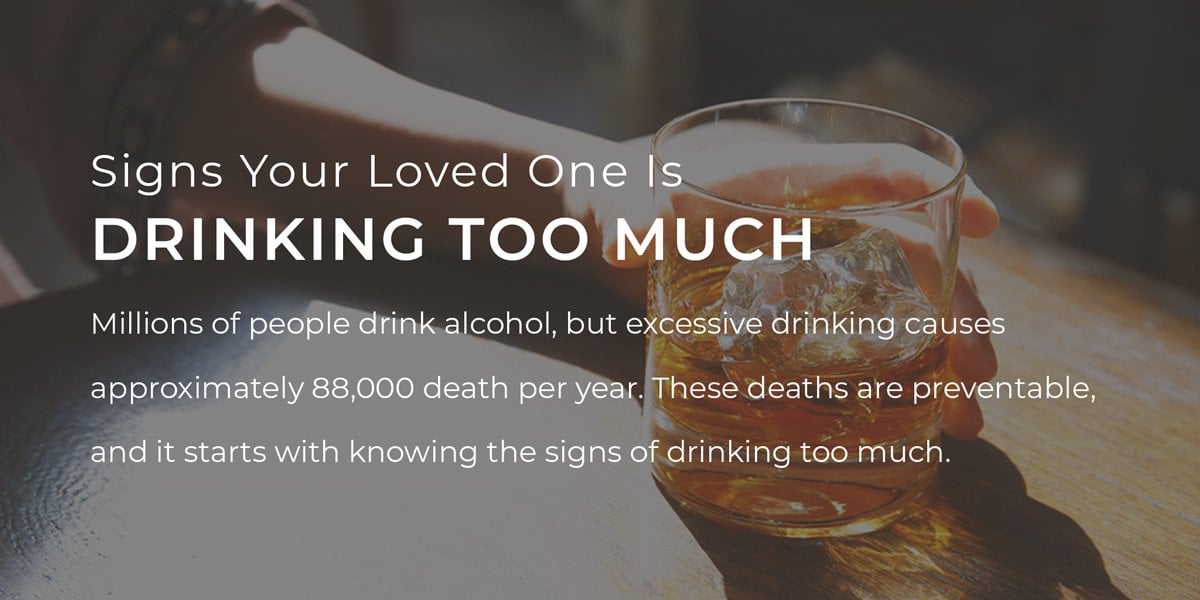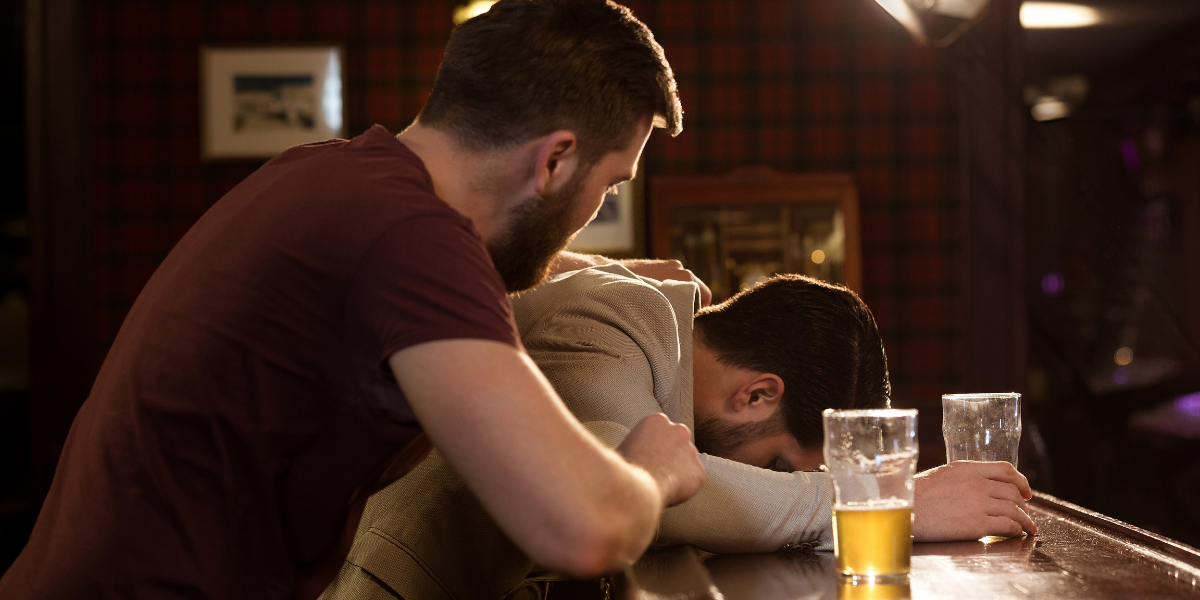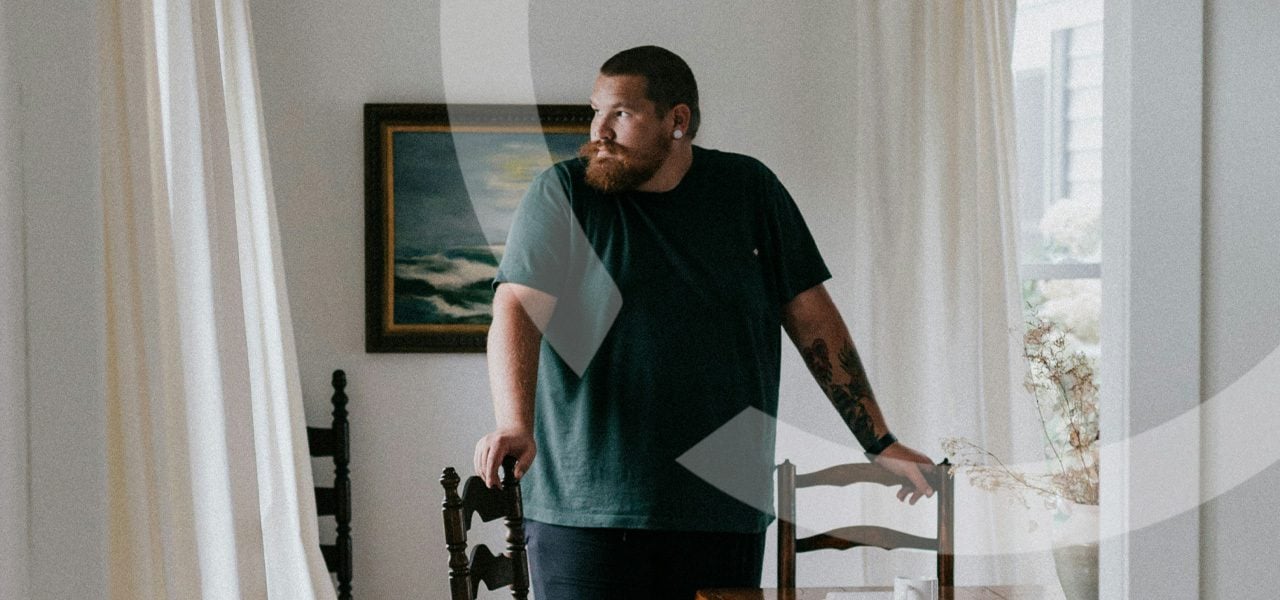Ever ask yourself the question: “Is my spouse drinking too much?” They are drinking more than they have in a while. They stop at the bar on the way home from work for a few. You may notice alcohol on their breath every so often and you had no idea they were drinking. Or you catch them drinking, sneaking drinks or hiding alcohol around the house. Even when they go to work, you begin to suspect they are drinking on the job. Here, the questions begin to start about where wonder if your spouse was drinking too much.
Obvious Signs
Let’s first talk about some obvious signs of our spouse having a problem with alcohol. When we look at the definition for an alcohol use disorder, the clinical term for alcoholism, we see certain symptoms that can be obvious from people just in their lives. You don’t necessarily need to know what they are thinking or feeling to see the effect alcohol is having on them. Here are some symptoms of alcoholism in your spouse that will be visible to you:
- Are they missing out on social functions, work, or family events because of drinking, getting drunk, or recovering from drinking?
- Are they continuing to drink in spite of consequences to them, like losing their job?
- Do they still drink even though it is causing problems in your relationship, and others’ relationships with them?
- Will they still drink even though it is affecting their health?
- Are they drinking and putting themselves, and others, at risk, like drinking and driving or drinking while on the job?
- Have they made promise to you to quit drinking, and tried, but could not stay sober?
- Are they getting sick when they stop drinking completely?
These questions should give you a good idea about the status of your spouse’s drinking. What you are seeing here is that alcohol has become more and more a part of your spouse’s life, and they are, in fact, in a relationship with alcohol now. That is their primary motivation if they are an active alcoholic, do whatever they can to get back to the one thing that matters to them now, drinking.

Other Warning Signs
Some other things to watch out for, and more evidence if you talk with your partner about this, that may indicate a problem with alcohol include hiding or sneaking drinks. Or if you find they are hanging out with a new crowd of friends that are at the bar, or drink frequently, that is a warning sign as well. Leaving old friends for ones that tolerate or approve of the drinking is what is going on. They may even be using friends to make themselves feel better about their drinking, thinking that, “At least I’m not as bad as that guy.”
You will likely be among the first to know your partner has a drinking problem, because you live with them and will know when they are not acting the way they normally do. You can expect there to be more fights and family tension. They will work to shift the blame to something else, trying to dodge responsibility and ownership of a drinking problem. It will be stress at work, or the kids, or it will be your nagging. These are all common arguments from partners who are alcoholics. To put it as simply as possible, trust your instincts here; when you feel something is wrong, you are probably right.
You need to be ready with next steps, no matter what. When talking to a spouse that is an alcoholic, you must think ahead, because they are not able to think beyond their next drink. So, have a plan of action ready. Spend some time investigating treatment facilities in the area first and have one selected before talking to your spouse. Inpatient rehab gives the best odds of a healthy, long-term recovery.
Having the earliest open spot is very helpful, because you will want to act as quickly as possible. If they are agreeable, then you need to move right then, to get them the help they need the earliest, but also so they do not have time to come with excuse why they cannot go into treatment. Inpatient treatment will take people on a regular basis, so if a bed is not available one day, get on the list for treatment, as one will open up quickly.
This will be a hard conversation to have, not just because it means confronting their behavior, but also because it is about the health and safety of your spouse, as well as your family. Take time to think through what you want to say, even if you have to write it down, because this is important. Calling and talking with a treatment team can give you some assistance in what steps to take, and help you encourage your spouse to get the help they desperately need. Recovery happens every day, and you can be instrumental in getting your spouse the healthy and happy life that you both deserve.
Contacting EHN Canada is the first step toward a healthier life, stronger self and can only be beneficial in helping your spouse recover. Don’t hesitate to contact an addiction specialist for questions or to book an assessment for yourself or a loved one.
TOLL FREE INFO LINE: 1-416-644-6345
Calls answered by an addiction specialist
You can visit our website for more information on our programs and how it can really help you through the process of recovery.




